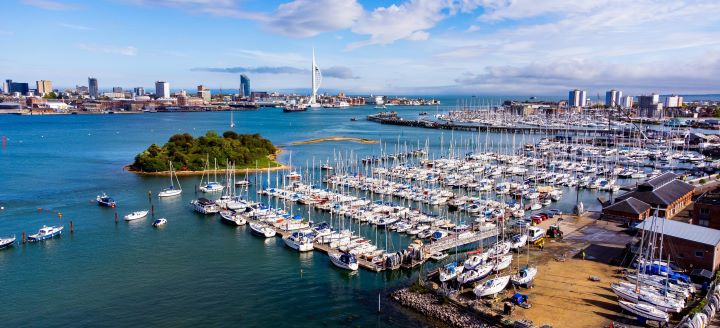Portsmouth City Council is set to invest more than £26m in a new shore power system to help the authority become carbon neutral by 2030.

The SEA CHANGE (Sustainable Energy and Air Quality Improvement for Coastal Harbours to Achieve Net-zero with Grid Enhancements) project will build and operate a new shore power system at the Portsmouth International Port (PIP).
The shore power system will allow Brittany Ferries’ vessels and visiting cruise ships to ‘plug-in’ and therefore switch off their engines while at berth. It will also support the charging of two new hybrid/LNG ferries that will enter and leave the harbour under electric power.
At a Portsmouth City Council Cabinet meeting this week, members approved recommendations to invest £26.1m into the SEA CHANGE project, which will be funded through an £18.4m government grant, £4.6m of prudential borrowing and £3m of corporate resources.
The £18.4m government funding was granted to Portsmouth City Council through the Zero Emissions Vessels and Infrastructure (ZEVI) competition, which was announced in February 2023. As part of the ZEVI competition, the Department for Transport allocated over £80m to 10 projects across the UK.
The shore power system will be funded from October 2023 to March 2025.
According to Portsmouth Council, the SEA CHANGE project aims to avoid more than 20,000 tonnes of CO2 emissions per year from 2027, which in turn will help the authority become carbon neutral by 2030 and emissions free by 2050.
The authority stated that it intends to deliver the shore power system project alongside various growth plans, which seek to increase its national economic impact from £390m to £739m and local economic impact from £189m to £375m.
The project is still subject to a satisfactory financial appraisal approved by the director of finance and resources and section 151 officer.
According to its latest treasury management strategy, Portsmouth City Council’s total investment portfolio averaged £445m during 2022/23, with its investments generating an average return of 1.72% through the financial year.
In addition, as of March 2023, the council had a gross borrowing debt of £747m. Of this, £701m is long-term borrowing and the remaining £46m is in other long-term liabilities.
—————
FREE weekly newsletters
Subscribe to Room151 Newsletters
Follow us on LinkedIn
Follow us here
Monthly Online Treasury Briefing
Sign up here with a .gov.uk email address
Room151 Webinars
Visit the Room151 channel














